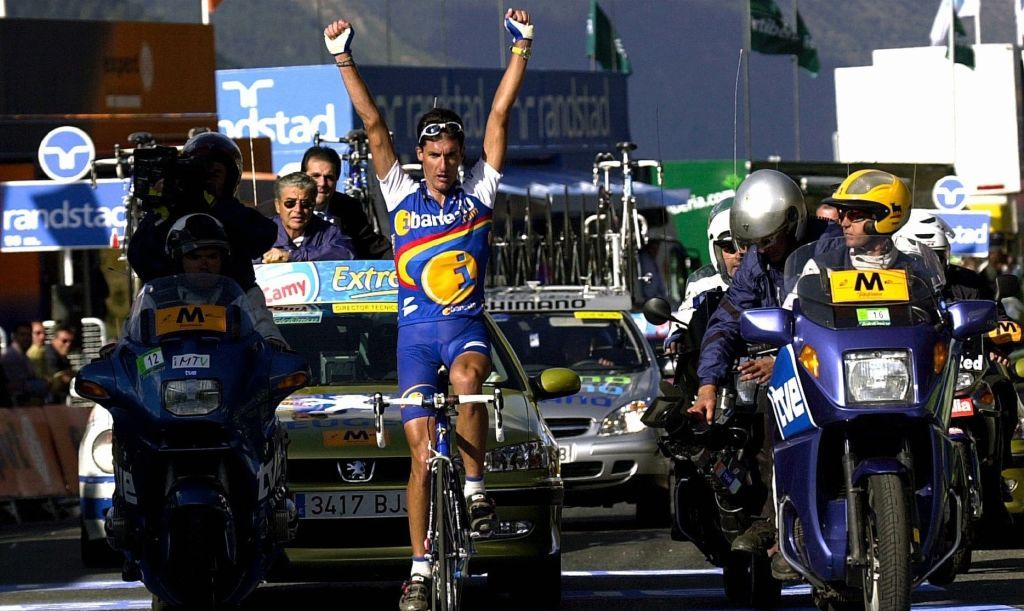Spanish cycling marked the 20th anniversary of the untimely death of climbing genius José María Jiménez, who died on December 6, 2003 at the age of 32.
Briefly considered a successor to Miguel Indurain in the late 1990s, Jiménez was a brilliant, compelling racer, though but enormously erratic, whose inconsistency and poor time trialling meant he could never reach the heights of Indurain or Spain’s other Grand Tour winners.
But despite being unusually tall for a climber, Jiménez scored some notable mountain-top successes, with his win on the first-ever ascent of a mist-enshrouded Angliru in the 1999 Vuelta a España considered his greatest-ever triumph.
Jiménez’ volatile lifestyle saw him leave the sport early, aged 30 in 2001, at the end of a season in which he had taken three stage wins and the mountains and points rankings in the Vuelta a España.
Suffering from bouts of depression, Jiménez left the sport for good, and less than two years later he died of a heart attack in Madrid.
“He was a charismatic rider who always was synonymous with spectacular racing and who knew how to thrill the fans with his epic style,” was how one article in one major sports daily MARCA, described him on Wednesday.
“Chava Jiménez: 20 years after the death of a legend” was the headline in another leading specialist newspaper, AS.
Born in El Barraco in the mountains west of Madrid, Spanish fans’ homages to Jiménez continue in his hometown. José Maria’s brother Juan Carlos, is writing a book about his sibling, told El Mundo.
“People come here from everywhere in Spain, from Málaga, Barcelona, Santander and Valencia, they pass by the house where my brother lived, they take photos next to his statue in the town, they go to the cemetery and they leave flowers.
“20 years have gone by and they still remember him. He lives on in people’s memories. They remember his achievements and the way he was.”
Impulsive but never less than compelling as a racer, the line between the real-life Jiménez and Jiménez the legend was always a blurry one. Anecdotes like his disappearing from a stage start at the Volta a Catalunya, only to return just in time for the race driving a Ferrari he’d just bought on a whim, only made him more attractive to the fans.
But at the same time, late in his life, he was blighted by depression, once telling AS in 2002 that he had spent two months alone in his bedroom, with such low morale he could not even talk to anybody.
Click Here to Read the Full Original Article at CyclingNews RSS Feed…

